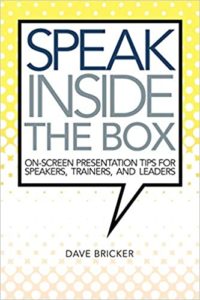I am extremely excited to share with you some storytelling tips for speakers with Dave Bricker. Dave is an experienced speaker, trainer, and coach. Even more cool – he is a sailor! In fact, he combines his love of sailing with storytelling and is able to help people tell remarkable stories—through writing, speaking, graphic design, video, technology, and music. If you want to say it, share it, or sell it, bring me your story; Dave can help you tell it.
I talk with Dave about how speakers and comedians can use storytelling to get their points across. It’s interesting to hear how Dave uses the sea as a metaphor to help people learn how to get their messages and stores told.
By the time Dave graduated from college, he was living aboard his own tiny sailboat. Soon after graduation, he set sail for the Bahamas with a locker full of food and dreams … and $40 in his pocket. You can find out more about dave at his site www.Storysailing.com.
[Thanks to Ray Price for being the Patreon sponsor for this episode. Learn more about the benefits of sponsoring at www.SchoolOflaughs.com/Patreon.]
His voyages took him up and down the Bahamas, up the east coast of the US to the Chesapeake Bay, and across the Atlantic to Gibraltar. He ran aground, dealt with mechanical breakdowns, got seasick more than once, slept in a volcano, survived powerful storms, and returned to the land of clocks and calendars with characters and stories of his own. This rich background makes him an incredible resource and an expert in storytelling tips for speakers.
Some of my favorite speakers are excellent at telling stories. If you love this style of comedy be sure to listen to my interview with Jeanne Robertson.
https://bit.ly/STORYTELLINGTIPSFORSPEAKERS221
Storytelling Tips with Dave Bricker
We get into the nitty-gritty of storytelling. Specifically, we talk about:
- How sailing is probably safer than your daily commute
- The characters you meet in a marina
- How to sleep standing up while captaining a boat
- Tips on noting characters and stories in the moment
- How a story represents a journey from conflict to transformation
- Why anti-smoking ads fail
- Why you don’t want to have an unfinished symphony
- What speaking is really about (clue – it isn’t YOU)
- The freedom that comes with knowing the difference between storytelling and journalism
- What to include in a story
- What you should leave out of a story
- Steps along the arc of a story
- Why conflict should be authentic and believable
- Why struggles are key for you and your audience
- Why great stories should have a clear outcome
 BONUS: VIRTUAL SPEAKING TIPS from DAVE BRICKER
BONUS: VIRTUAL SPEAKING TIPS from DAVE BRICKER
Dave also has a few tips for us on:
- Camera placement
- Eye contact
- Gear
- Lighting & Sound
Dave Bricker’s Advice for New Speakers
Well, I’d like to go briefly into two places. My advice for new speakers is it’s a journey, not a destination. And if you go to your first NSA convention, and you’ll see the old-timers who have known each other for decades and kind of grown through their speaking careers together. It’s easy to deify those people. They’ve been at the business for a long time and some of them are immensely talented. But you’ll get there. Just keep working on your speaking keep reading, keep speaking. My friend Bruce Turkel always says, if you want to speak more, speak more, take those Rotary Club gigs, whatever you can do to be of service to an audience. And then lather, rinse, repeat, keep doing it. Keep refining it. If you keep speaking, you’ll keep getting better. And don’t compare yourself to anybody. And don’t worry about where you’re at now just keep growing.
The last one I wanted to just touch on is comedy. And I think one of the things we haven’t quite got to yet is comedy. And just as you develop a story, awareness, I’m always looking for stories. Sometimes I’ll explore, gee, maybe I’ll go down that street or take that detour because it could be that nothing happens and the story is that I wasted my time. But it could be that I meet somebody or see something that I wouldn’t otherwise see. And taking those chances, you know, putting yourself in the way of potential stories is important. And I think it’s the same thing with jokes.
More storytelling tips for speakers …
So I know that you know, I’ve done a number of humorous speech contests. And I always have a place in a humorous speech where I’ve got something to plugin. That’s from the room from the day, and whether it has something to do with the food, or the name tags or find something that’s absurd in the room, and I make it my mission. The moment I wake a walk in there, I’m thinking, Okay, I’ve got a speech to do. I’ve got 45 minutes before I’m on stage. And I’m going to find something ludicrous in this room that I can plug into my speech so that people know that I’m not just memorizing. That I’m pulling from their environment. And just as you become story aware I think you can become humor aware. And find that funny wherever you go wherever you look, and it just makes your life a lot more fun. That’s why they call it funny.








